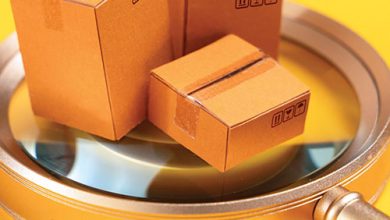CELEBRITY WOES

THE INEVITABLE CRASH OF GLOBAL TITANS
Saro Thiruppathy looks at what the month of January has delivered in terms of bringing some of the high and mighty among us down to earth

The new year has barely got off to a solid start and yet, here we are witnessing the humiliation of three powerful – and some may say, arrogant – men (a prince, a prime minister and a sportsman) under the full glare of the public spotlight.
Prince Andrew (no longer His Royal Highness) has been stripped of all his military paraphernalia and royal patronages, and the titles returned to the Queen. This is in view of the civil case being brought against him by a woman who says she was sexually exploited by Andrew… when she was a minor.
Meanwhile, British Prime Minister Boris Johnson has been sweating it out in parliament and the media as he allegedly adds lie upon lie to his endless list of ‘porky pies.’ This particular version is about the booze parties with party games that were held at No. 10 Downing Street while London was under tier 3 lockdown restrictions.
One particular bash is said to have been held on the night before Prince Philip was buried and the monarch was in mourning. Unlike boozy Boris, the queen was seen seated alone wearing a mask at the funeral service, dutifully following pandemic guidelines.
DETAINED But the most talked about and polarising celebrity so far has been the Serbian world’s number one tennis player Novak Djokovic. While Novak’s skill is not in question, his ethics certainly are – at least in the context of the COVID-19 protocols down under.
The world is occupied by far too many people who live utterly self-centred lives. Some celebrities possess a sense of entitlement and believe they can break the rules simply because of who they are. Andrew, Boris and Novak are three classic examples…
Tennis Australia had arranged for a visa so that Djokovic could enter Australia and play in the Australian Open (AO). Even though Novak had admitted that he had contracted COVID-19 in June 2020 and December 2021, he remained proudly unvaccinated. Tennis Australia didn’t consider that as a red flag in a nation that’s battling COVID-19 and anti-vaxxers simultaneously.
When he was detained at Melbourne’s Tullamarine Airport due to his non-vaccination status, his supporters, family and he himself made an almighty fuss. There was a collective demand that he be allowed entry simply because he’d recovered from COVID-19 (twice) and if that was good enough for him, it should be good enough for the Australian government.
He was transferred to the city’s quarantine centre (the Park Hotel) on 5 January and ever since then, the tennis world has been sharply divided on whether Djokovic should or shouldn’t be allowed to play in the year’s first grand slam tournament.
His case was heard on 10 January by Federal Circuit Court Judge Anthony Kelly who agreed to let Djokovic give evidence remotely while under detention.
The judge noted that the No. 1 player hadn’t been allowed sufficient time to confer with his lawyers before authorities decided to detain him since he didn’t meet the entry requirements where non-citizens have to be fully vaccinated. So he ordered the government to release Novak within half an hour from his detention at the Park Hotel.
But the euphoria in the Djokovic camp was muted when barrister for the government Christopher Tran informed the judge that the Minister for Immigration Alex Hawke was considering exercising his personal powers to cancel Djokovic’s visa.
EXPELLED And eventually, that’s exactly what happened. Hawke used his personal powers to cancel the unvaccinated tennis superstar’s visa on the basis that Djokovic’s presence in Australia could incite “civil unrest” and encourage others to not get vaccinated against COVID-19.
Novak has also been banned from entering Australia for three years under the country’s immigration laws – although Prime Minister Scott Morrison says that he may be allowed entry sooner than that under the “right circumstances,” since Australian law does permit entry for compelling or compassionate reasons.
Finally, Djokovic had his appeal overturned on 16 January and lost the opportunity to play his fellow Serb Miomir Kecmanović the following day in Melbourne Park.
Ultimately, the nine times AO winner (including three in a row) and holder of 20 grand slam singles trophies – who is tied with Rafael Nadal and Roger Federer for the most slams in men’s tennis – paid for his personal preference against vaccination by boarding a flight to Dubai the same day he lost his appeal.
Meanwhile, Novak’s anti-vaccination problems don’t seem to have abated because France is also considering banning him from playing at Roland Garros (at the French Open) in May. French politicians have voted in favour of a law banning all unvaccinated people from entering sports arenas.
The pandemic isn’t limited to hospitalisation and intubation; it is pushing governments to take stern action against those who aren’t interested in social safety – and opt to focus only on themselves.





